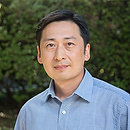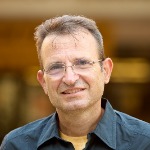Page 19 • (1,739 results in 0.019 seconds)
-
Why Study Religion? Religion provides orientation and direction for individuals and communities, societies and cultures.
students must take at least 20 hours at PLU. Course Requirements for the Minor There are two options: First, the religion minor requires 16 semester hours, with eight hours in each of the two main areas of study mentioned above. Transfer minors under this option must take at least eight hours at PLU. Second, the religion minor taken under the Teacher Education option is intended primarily for parochial school teachers enrolled in the School of Education. This minor requires 24 semester hours, with at
-
The Rainier Writing Workshop has now produced a critical mass of graduates, many of whom have published books of poetry, nonfiction, and fiction.
Post-MFA MentorshipsThe Rainier Writing Workshop has now produced a critical mass of graduates, many of whom have published books of poetry, nonfiction, and fiction. These books were often the creative theses that the graduates completed in their final year in the program. For others, the creative thesis is a foundational iteration of work that will be developed into publication-worthy manuscripts. The Rainier Writing Workshop is committed to helping its alumni with their writing and
-

Associate Professor | The PLU Chinese Studies Program | chanla@plu.edu | 253-535-7330 | Dr.
Leong Chan, Ph.D. Associate Professor Phone: 253-535-7330 Email: chanla@plu.edu Office Location: Mor
Area of Emphasis/Expertise -

Associate Professor | The PLU Chinese Studies Program | fanxa@plu.edu | 253-535-8130 | Dr.
Xiaohong Fan, Ph.D. Associate Professor Phone: 253-535-8130 Email: fanxa@plu.edu Office Location: Mo
-

Associate Professor | The PLU Chinese Studies Program | liuaa@plu.edu | 253-535-8129 | Dr.
Xin Abby, Liu, Ph.D. Associate Professor Phone: 253-535-8129 Email: liuaa@plu.edu Office Location:Mo
-

Visiting Instructor of Chinese Studies | Global & Cultural Studies | xi.zhu@plu.edu | 253-535-7220
Xi Zhu Visiting Instructor of Chinese Studies Phone: 253-535-7220 Email: xi.zhu@plu.edu Office Location: Hauge Administration Building - 207-E
-
“This residency -- compressed time -- has provided me with time, with time out of time, that has allowed me to immerse myself in language, in my contemporaries, in the writing world.”
in poetry, fiction, and nonfiction. Classes are also offered on issues of pedagogy, and how to build and maintain a writing practice and community beyond the MFA. Each participant is free to create their own menu of classes during the residency, regardless of the participant’s primary genre. A participant who is primarily a poet, for example, may opt to take classes in nonfiction, while a participant involved with writing a memoir project may choose to take classes in fiction. During the
-
If you have previous experience with French, Spanish, or Chinese, you can use this guide to determine the course level that is right for you.
Language PlacementIf you have previous experience with French, Spanish, or Chinese, you can use this guide to determine the course level that is right for you. After looking over the guide, if you’re still uncertain about which course to take, you can fill out a Language Placement Survey in Self-Service Banner and a faculty member will enter a recommendation into your Banner profile that your advisor can access.FrenchSpanishChineseFrenchBienvenue!Welcome to the Language Placement Guide for the
-
Originally Published in 2016 The German word for the humanities is die Geisteswissenschaften – literally translated, the sciences of the spirit or of the mind. The term, coined by the historian Wilhelm Dilthey in the 19 th century, has its roots in the German philosopher…
English we encounter the German loan word “Geist” in the term Zeitgeist, which describes the spirit of a particular historical juncture.) German speakers have become household names in the fields studied by humanities scholars, whether in literature (Johann Wolfgang von Goethe, the brothers Grimm, Franz Kafka), film (Werner Herzog, Wim Wenders), music (Wolfgang Amadeus Mozart, Johann Sebastian Bach, Ludwig van Beethoven), art (Caspar David Friedrich, Anselm Kiefer, Gerhard Richter), philosophy
-

Professor of Hebrew Bible | Religion | finitsak@plu.edu | 253-535-7319 | Antonios Finitsis’ approach to biblical literature is deeply socio-historical.
Antonios Finitsis Professor of Hebrew Bible Phone: 253-535-7319 Email: finitsak@plu.edu Office Location: Hauge Administration Building - 227-G Professional Biography Additional Titles/Roles Executive Director for the Wild Hope Center for Vocation President, PNW Region American Academy of Religion and Society of Biblical Literature Education Ph.D., Hebrew Bible, University of Chicago, 2007 M.A., Biblical Studies, University of Chicago Divinity School, 1998 B.A., Religion, Univeristy of Athens
Area of Emphasis/Expertise
Do you have any feedback for us? If so, feel free to use our Feedback Form.


